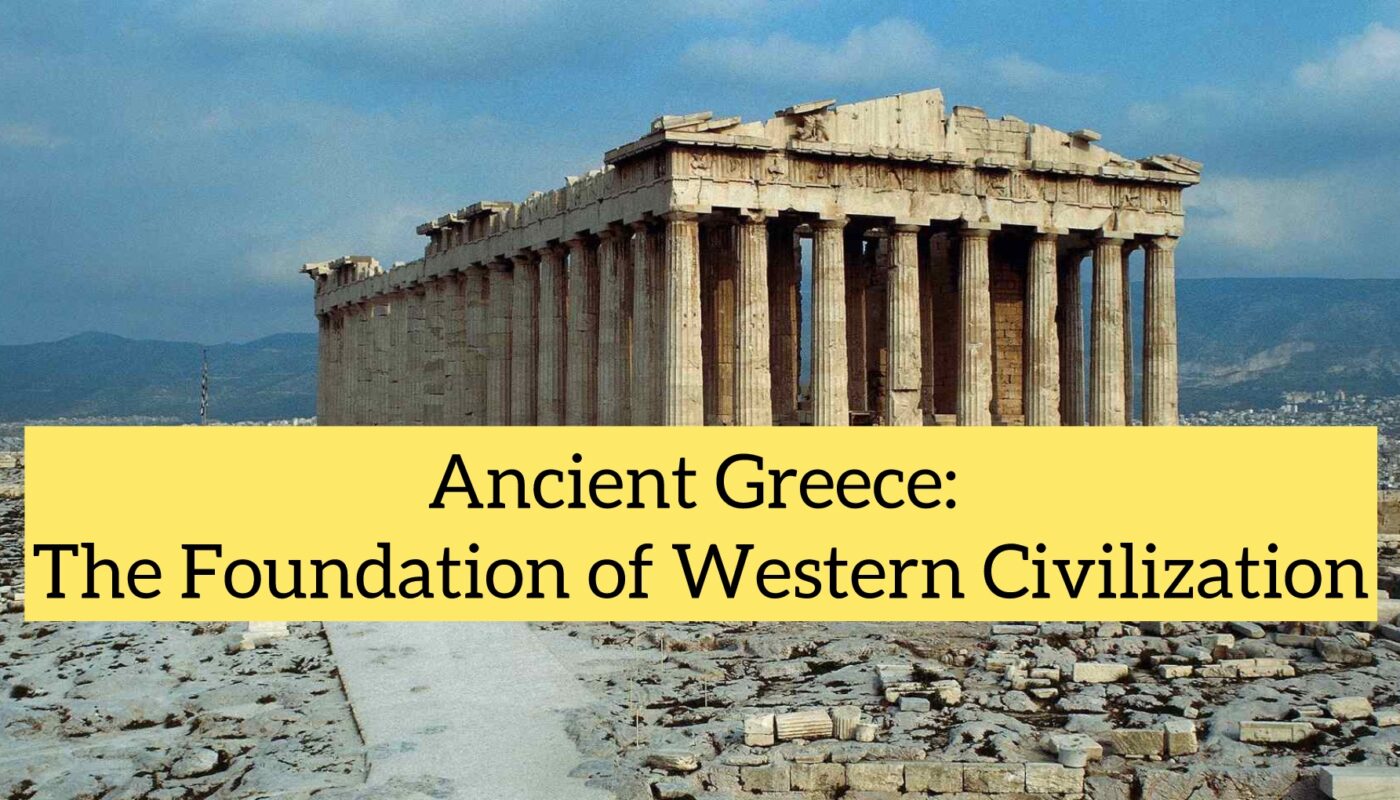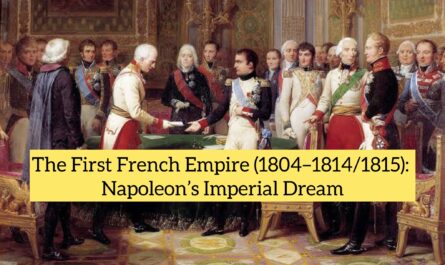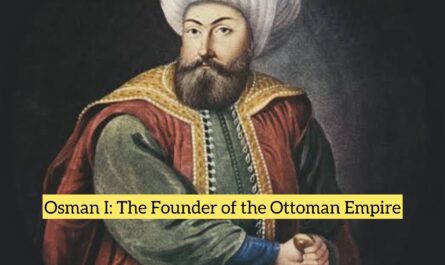Introduction
The Greek Empire, more accurately known as Ancient Greece, was a collection of independent city-states and territories that laid the foundations of Western philosophy, democracy, literature, science, and art. Flourishing from the 8th century BCE to around 146 BCE, Ancient Greece was not a centralized empire in the traditional sense but a cultural and political powerhouse whose influence extended far beyond its borders.
At its peak, the Greek world stretched from the Ionian coast of Asia Minor to southern Italy and North Africa, including colonies across the Mediterranean. This civilization’s impact continues to resonate in modern governments, languages, architecture, and educational systems.
Geographic and Political Structure
The Greek World
Ancient Greece was located in the southern Balkan Peninsula, encompassing:
-
Mainland Greece
-
The Peloponnesian Peninsula
-
Numerous Aegean and Ionian islands
-
Coastal regions of Asia Minor (modern-day Turkey)
City-States (Poleis)
Unlike a unified empire, Greece was made up of independent city-states, each with its own government, laws, army, and currency. Key city-states included:
-
Athens – Cultural and intellectual hub; birthplace of democracy
-
Sparta – Militaristic and disciplined society
-
Corinth – Wealthy trading center
-
Thebes – Military power in central Greece
-
Delphi – Religious center known for the Oracle
Despite internal rivalries, Greeks shared a common language, religion, and cultural identity.
Historical Periods of Ancient Greece
1. The Archaic Period (c. 800–500 BCE)
This era marked the emergence of:
-
City-states (poleis)
-
The Greek alphabet (adapted from the Phoenician script)
-
Expansion through colonization across the Mediterranean and Black Seas
-
The rise of early tyrannies and aristocracies
Cultural advancements began taking root, and Homer’s epic poems—the Iliad and the Odyssey—were composed during this time.
2. The Classical Period (c. 500–323 BCE)
Known as the Golden Age of Greece, this era was defined by:
-
The birth of Athenian democracy
-
Philosophical brilliance: Socrates, Plato, Aristotle
-
Artistic and architectural achievements (e.g., the Parthenon)
-
Military conflicts: Greco-Persian Wars and the Peloponnesian War
Athens reached its zenith under Pericles, promoting democracy and patronizing the arts. However, internal strife led to a weakening of the city-states.
3. The Hellenistic Period (323–146 BCE)
After the death of Alexander the Great, Greek culture spread across Asia, Africa, and the Mediterranean. The Hellenistic kingdoms (like the Ptolemaic Empire in Egypt and the Seleucid Empire in Asia) continued Greek traditions, blending them with local customs.
During this period:
-
Greek became the lingua franca across the eastern Mediterranean.
-
Science and learning flourished, especially in cities like Alexandria.
-
Greek art and architecture influenced entire regions.
The Hellenistic period ended with the Roman conquest of Greece in 146 BCE.
Government and Society
Democracy and Politics
Ancient Greece is best known for pioneering democracy, especially in Athens, where:
-
Citizens (free, land-owning men) voted directly on laws.
-
Important offices were often filled by lottery.
-
Public debate was central to governance.
Other city-states like Sparta maintained oligarchies or mixed constitutions, combining elements of monarchy, aristocracy, and democracy.
Social Structure
Greek society was divided into:
-
Citizens – with political rights
-
Metics – free foreigners with limited rights
-
Slaves – who had no legal rights
-
Women – generally excluded from political life but had varying degrees of freedom depending on the city-state
Culture and Achievements
Philosophy and Science
Greek thinkers laid the groundwork for Western thought. Key philosophers:
-
Socrates – Ethics, the Socratic method
-
Plato – Idealism, political theory
-
Aristotle – Logic, science, metaphysics
Greek scientists like Archimedes, Hippocrates, and Ptolemy advanced fields including:
-
Medicine
-
Mathematics
-
Astronomy
-
Physics
Art and Architecture
Greek architecture emphasized harmony, proportion, and beauty, with iconic structures like:
-
The Parthenon in Athens
-
The Temple of Apollo at Delphi
Greek sculpture evolved from rigid forms to realistic human figures. Styles include:
-
Archaic – stiff and stylized
-
Classical – idealized naturalism
-
Hellenistic – expressive and dynamic
Literature and Drama
Greek literature included epic poetry (Homer), lyric poetry (Sappho), and drama:
-
Tragedians: Aeschylus, Sophocles, Euripides
-
Comedians: Aristophanes
These plays addressed timeless themes like justice, power, love, and fate.
Religion and Mythology
Greeks were polytheistic, worshiping gods like:
-
Zeus – king of the gods
-
Athena – goddess of wisdom
-
Apollo – god of light and music
-
Poseidon – god of the sea
Religious festivals, oracles, and temples were central to public life.
Military and Warfare
Hoplite Warfare
Greek soldiers, or hoplites, fought in phalanx formations, using:
-
Long spears (dory)
-
Round shields (aspis)
-
Bronze armor
Naval Power
Athens developed a strong navy with triremes, helping to defeat the Persians at Salamis (480 BCE).
Major Conflicts
-
Greco-Persian Wars (499–449 BCE): Greek unity defeated the mighty Persian Empire at Marathon and Plataea.
-
Peloponnesian War (431–404 BCE): A destructive civil war between Athens and Sparta, resulting in Spartan victory but overall weakening of Greece.
-
Conquests of Alexander the Great (336–323 BCE): Unified Greece conquered the Persian Empire, spreading Greek culture eastward.
Decline and Roman Conquest
By the 4th century BCE, internal divisions weakened the Greek city-states. Macedon, under Philip II and Alexander the Great, briefly unified the Greek world. After Alexander’s death, his empire fragmented.
By 146 BCE, Rome had absorbed Greece into its growing republic after defeating the Achaean League at the Battle of Corinth.
Despite political subjugation, Greek culture flourished under Roman rule, heavily influencing Roman education, art, and philosophy—a phenomenon known as Greco-Roman culture.
Legacy of Ancient Greece
The contributions of Ancient Greece are immeasurable. Key legacies include:
Politics and Philosophy
-
Democracy
-
Republicanism
-
Critical thinking and rationalism
Language and Literature
-
Roots of Western literature
-
Greek words and prefixes still used in science and medicine
Science and Math
-
Geometry, astronomy, and medicine shaped by Greek discoveries
Art and Architecture
-
Classical styles emulated in Renaissance and modern architecture
Education
-
Modern curricula still reference Greek thinkers and texts
Timeline of Major Events
| Year | Event |
|---|---|
| c. 800 BCE | Emergence of city-states |
| 776 BCE | First Olympic Games |
| 508 BCE | Democracy established in Athens |
| 490 BCE | Battle of Marathon |
| 480 BCE | Battles of Thermopylae and Salamis |
| 431–404 BCE | Peloponnesian War |
| 336–323 BCE | Reign of Alexander the Great |
| 146 BCE | Greece conquered by Rome |
Conclusion
The Ancient Greek Empire, though not an empire in the traditional sense, was a civilizational force that shaped the ancient world and laid the foundations for the modern West. From democracy and philosophy to art, science, and warfare, Greek innovations continue to influence how we think, govern, and create.
While its political independence ended with the Roman conquest, its cultural legacy endures, making Ancient Greece not just a historical period, but a living tradition woven into the fabric of modern life.
FAQs
Was Greece ever an empire?
Greece was primarily a collection of independent city-states. However, during the conquests of Alexander the Great, the Greeks formed a vast empire known as the Hellenistic Empire.
Who were the most famous Greek leaders?
Key figures include Pericles, Leonidas, Philip II, and Alexander the Great.
What language did the Greeks speak?
They spoke various Greek dialects, including Attic, Ionic, Doric, and Aeolic.
What is the most significant Greek contribution to the world?
The concept of democracy, along with philosophy, science, and the arts, are among the most impactful Greek contributions.
When did Ancient Greece end?
Ancient Greece’s political autonomy ended in 146 BCE with the Roman conquest, but its culture continued to thrive under Roman rule.



